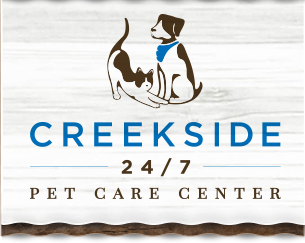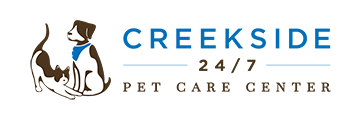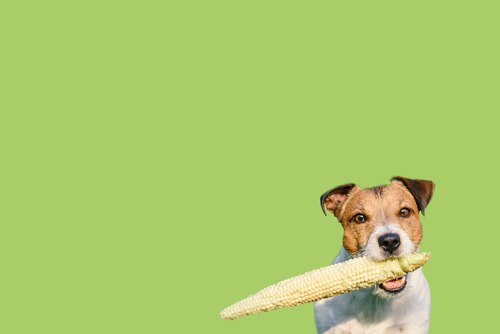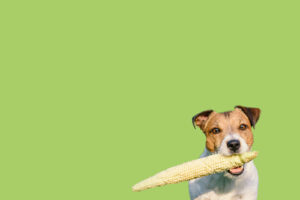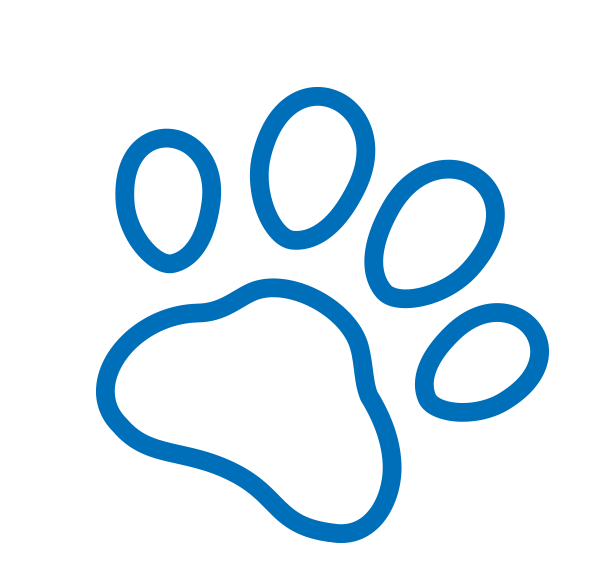Corn on the cob is a summer staple in many households, especially around barbecues and picnics—but if you’re a dog owner, you might be wondering: can dogs eat corncobs? While sharing a bite of your own food with your dog might feel harmless, some items pose serious risks, and corncobs are one of them. This blog will explain why corncobs are dangerous for dogs, what symptoms to watch for if your pet accidentally eats one, and what to do if it happens. We’ll also discuss safer alternatives for your dog and how you can help them stay out of trouble when food is around. If you have questions about what your dog should or shouldn’t eat, call Creekside Pet Care Center in Keller, Texas, at (817) 421-5850 or book an appointment online today!
Why the Answer to “Can Dogs Eat Corncobs?” Is No
Corncobs are not safe for dogs. While corn itself is not harmful in small, cooked amounts, the cob is a completely different story. Dogs cannot properly digest corncobs, and these dense, fibrous cores can cause serious blockages in their digestive tract. Even small pieces of cob can become lodged in the intestines or stomach, leading to a medical emergency.
Dogs tend to chew quickly and swallow large chunks, especially if they get into the trash or snag something off a plate. Because corncobs don’t break down easily, they often sit in the gut and cause obstructions. These types of blockages typically require surgery to remove. That’s why the answer to “can dogs eat corncobs” should always be a firm no.
What Makes Corncobs So Dangerous for Dogs?
Corncobs present several health risks, and the danger doesn’t depend on a dog’s size. While large dogs might be able to swallow a cob whole, small and medium breeds face just as much risk, if not more.
Indigestibility of Corncobs
Dogs cannot digest corncobs, even if they chew them into smaller pieces. The fibrous material resists breakdown in the stomach and intestines. Because of this, corncobs can stay in the digestive tract and obstruct normal movement, preventing food and gas from passing through. This condition, known as a gastrointestinal obstruction, is extremely painful and life-threatening if not treated promptly.
Choking Hazard
If a dog swallows a large piece of cob—or the entire cob—it can get stuck in the throat and block the airway. This risk is especially high in dogs that are quick to gulp food or prone to snatching things without chewing. Choking on a corncob can cause distress and, in some cases, collapse due to lack of oxygen.
Risk of Internal Injury
The rough texture and hardness of the cob can also cause trauma to a dog’s esophagus, stomach, or intestines. Scrapes, punctures, or tears in the GI tract can lead to internal bleeding and infection, requiring emergency surgery and hospitalization.
Symptoms of Corncob Ingestion in Dogs
If you suspect your dog ate a corncob, call your veterinarian right away—even if your dog seems fine. Symptoms may not appear immediately but can progress quickly. Here’s what to watch for:
- Vomiting
- Loss of appetite
- Lethargy
- Drooling or lip licking
- Abdominal pain or bloating
- Difficulty defecating or diarrhea
- Whining or pacing due to discomfort
These symptoms often indicate an obstruction. Left untreated, it can result in severe dehydration, shock, and damage to internal organs.
What to Do If Your Dog Ate a Corncob
Never wait to see what happens. If your dog ate a corncob, call Creekside Pet Care Center at (817) 421-5850 right away. Even if you’re not sure how much was eaten, it’s better to act early. Your vet may recommend an exam, X-rays, or an ultrasound to check for signs of obstruction. Do not attempt to induce vomiting at home unless specifically directed to do so by your veterinarian. Vomiting could make things worse if the cob is already stuck or if it causes injury on the way back up.
Prompt veterinary care can make all the difference. If caught early, some obstructions may be managed without surgery. However, in many cases, surgery is necessary to remove the foreign material and prevent permanent damage.
Can Dogs Eat Corn Off the Cob?
This is a common question among pet owners, especially those who want to share their food. In moderation, plain cooked corn off the cob is not toxic to dogs and can be safely offered as an occasional treat.
Safe Ways to Offer Corn
If you’d like to give your dog a small amount of corn, here are some safe tips:
- Remove it completely from the cob
- Avoid seasoning, butter, and salt
- Offer a small portion only occasionally
Corn does contain fiber and essential vitamins, but it should never be a major part of your dog’s diet. Always introduce new foods gradually and observe your dog for any signs of digestive upset.
How to Prevent Corncob Accidents at Home
The best way to protect your dog is by preventing access to corncobs altogether. Whether you’re grilling outside or cleaning up after a meal, it’s important to stay alert.
Safe Practices for Pet Parents
- Keep corncobs out of reach. Dispose of them in a dog-proof trash can with a secure lid.
- Supervise outdoor meals. Dogs are quick to grab food that falls on the ground or is left unattended on picnic tables.
- Educate guests and children. Make sure everyone at a gathering knows not to feed your dog scraps.
- Be aware of scavenging habits. If your dog likes to nose through trash or countertops, be extra cautious after meals.
Common Foods That Also Pose a Risk
While we’re on the topic of human foods, it’s helpful to know what else should stay out of your dog’s bowl. Alongside corncobs, several other foods are known to be dangerous for dogs:
- Grapes and raisins – toxic to kidneys
- Onions and garlic – cause anemia
- Cooked bones – can splinter and puncture the GI tract
- Chocolate – contains theobromine, toxic to dogs
- Macadamia nuts – can cause neurological symptoms
When It’s Time to Reach Out
If you’ve caught your dog with a corncob—or if they’re showing signs of discomfort—it’s time to make the call. Quick action can prevent serious complications. Our team at Creekside Pet Care Center offers care ranging from advanced urgent care or just a routine wellness visit. Call us today at (817) 421-5850 or book an appointment online to speak with a veterinarian. We’re proud to support pet families throughout Keller and the surrounding area.
